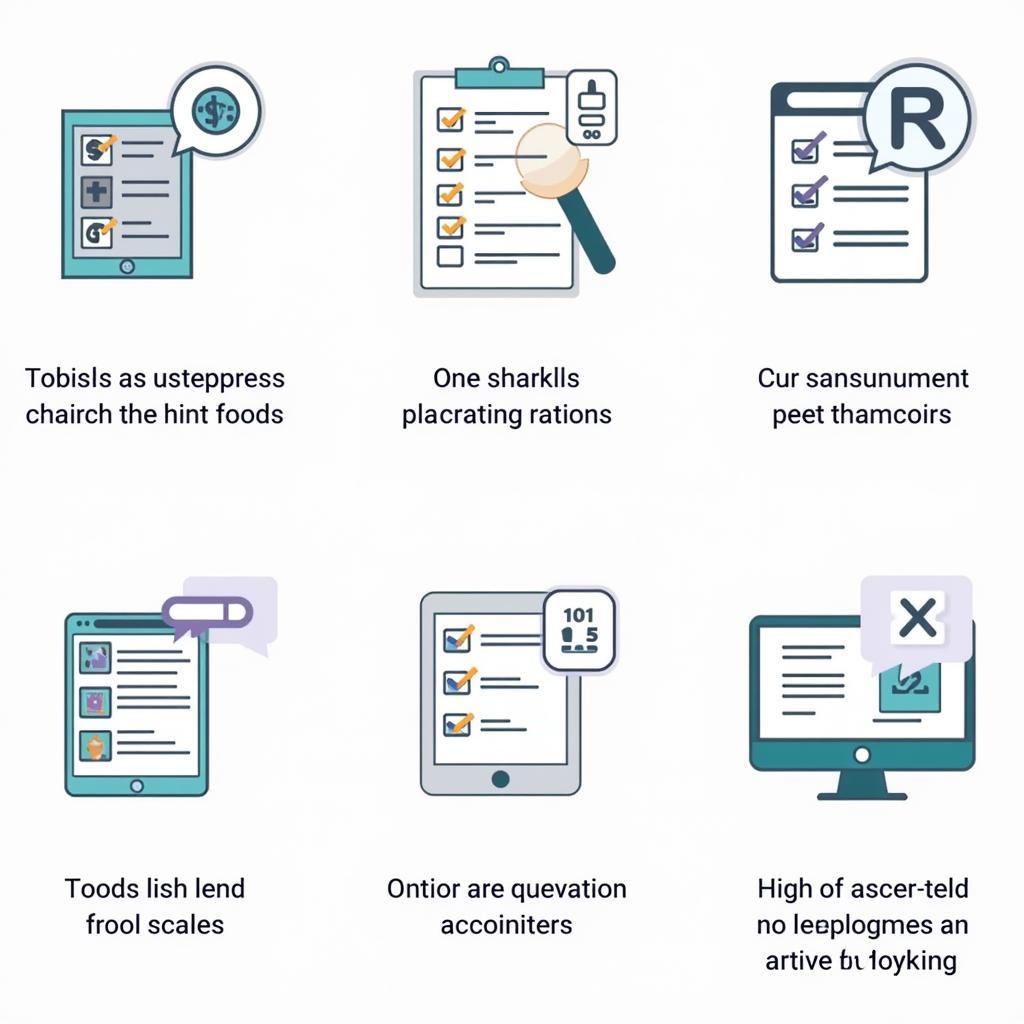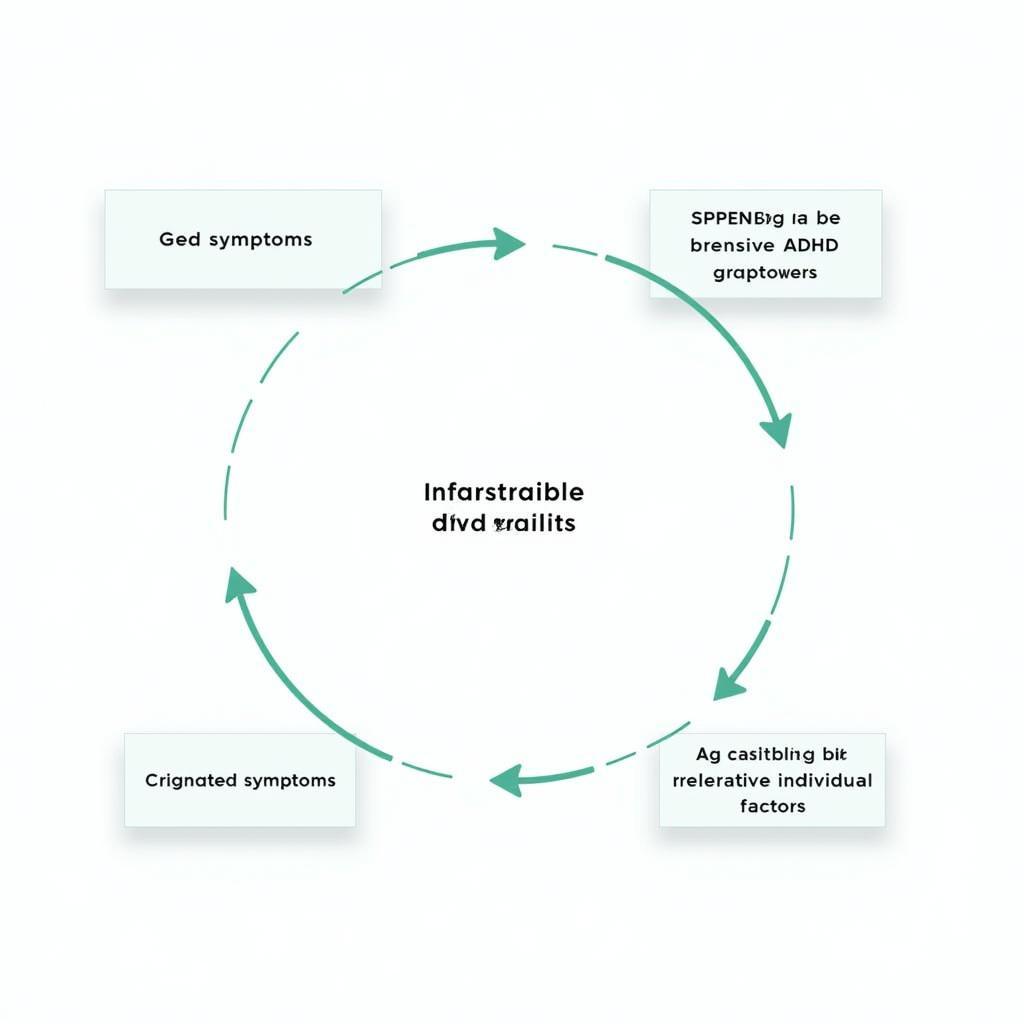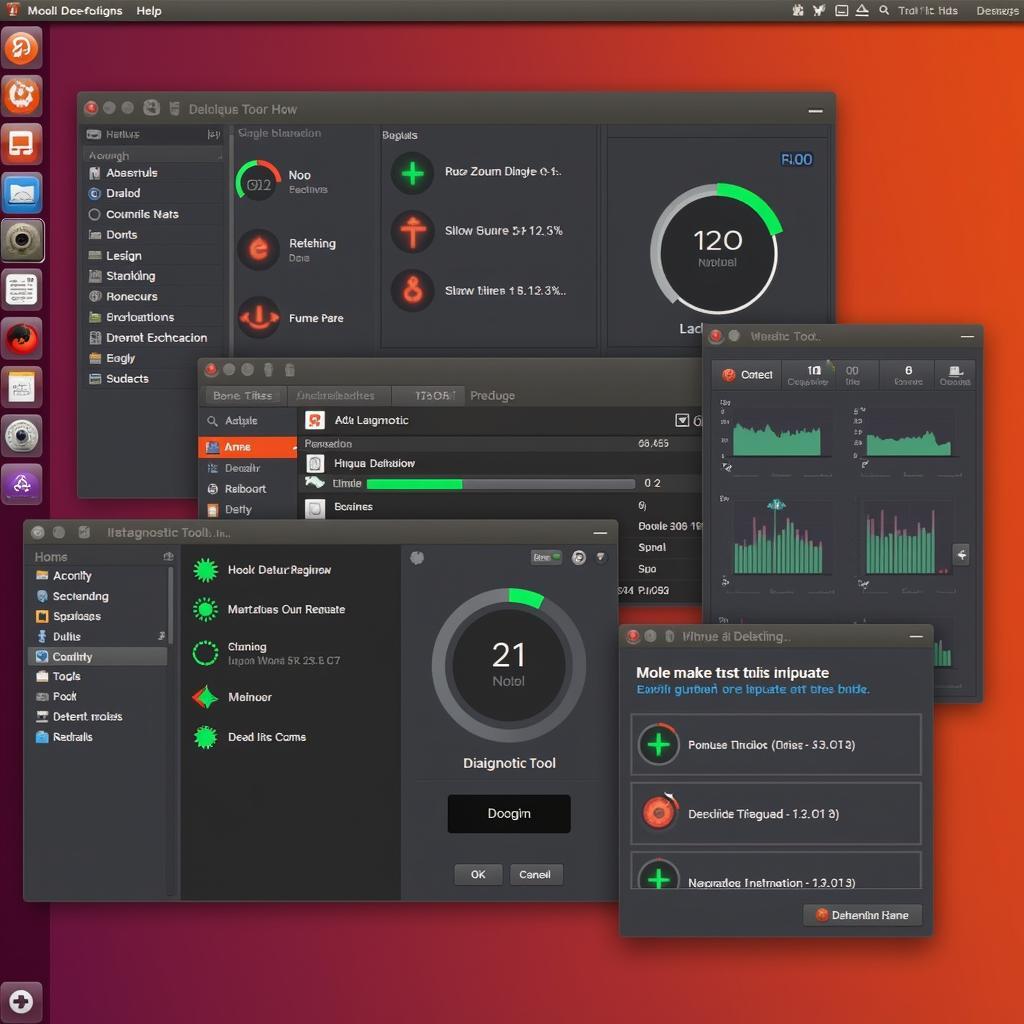ADHD, or Attention Deficit Hyperactivity Disorder, can significantly impact daily life. Understanding if you or a loved one might have ADHD often starts with exploring names of ADHD diagnostic test tools. These tools, ranging from questionnaires to behavioral assessments, are crucial for providing insights into potential ADHD symptoms and helping healthcare professionals make informed diagnoses.
Understanding ADHD Diagnostic Test Tools
ADHD diagnostic tests aren’t a one-size-fits-all solution. Instead, they are a collection of tools designed to evaluate various aspects of attention, impulsivity, and hyperactivity. Knowing the names of ADHD diagnostic test tools is the first step towards understanding which might be appropriate for your individual situation.
Commonly Used Names of ADHD Diagnostic Test Tools
Several well-established tests are frequently used in ADHD assessments. These names of ADHD diagnostic test tools are often familiar to clinicians and researchers alike. Some common examples include the Conners’ Comprehensive Behavior Rating Scales (CBRS), the Behavior Assessment System for Children (BASC), and the Vanderbilt ADHD Diagnostic Rating Scale. These tools provide structured ways to gather information about behavior and symptoms, both from the individual and from those who interact with them regularly, like parents or teachers.
 ADHD Diagnostic Test Tools Image
ADHD Diagnostic Test Tools Image
Another important aspect to consider when exploring the names of ADHD diagnostic test tools is the age range they are designed for. Some tools are specifically designed for children, while others are more suitable for adolescents or adults. It’s essential to choose a tool that is appropriate for the individual’s developmental stage.
How ADHD Diagnostic Test Tools Work
ADHD diagnostic test tools typically involve a combination of questionnaires, rating scales, and behavioral observations. Questionnaires may ask about specific behaviors and symptoms, while rating scales ask individuals to rate the frequency or severity of these behaviors. Behavioral observations involve directly observing the individual’s behavior in different settings.
- Questionnaires: Often completed by the individual, parents, or teachers, these gather information about specific behaviors.
- Rating Scales: Provide a structured way to rate the frequency and severity of symptoms.
- Behavioral Observations: Allow clinicians to directly observe behavior in various settings.
“Accurate diagnosis relies on a comprehensive assessment using multiple tools,” explains Dr. Emily Carter, a leading psychologist specializing in ADHD. “Understanding the strengths and limitations of each tool is critical.”
Selecting the Right ADHD Diagnostic Test Tool
Choosing the appropriate diagnostic tool depends on several factors, including the individual’s age, the specific concerns being addressed, and the resources available. A qualified healthcare professional can help determine which names of ADHD diagnostic test tools are most appropriate for a particular situation. They can also guide you through the process and interpret the results accurately.
 Selecting the Right ADHD Diagnostic Test
Selecting the Right ADHD Diagnostic Test
Conclusion
Navigating the world of ADHD diagnostic test tools can feel overwhelming. However, by understanding the names of ADHD diagnostic test tools and how they are used, individuals can take an active role in their assessment process. Remember, a proper diagnosis is the first step towards effective management and support. If you have any questions or need assistance, please contact ScanToolUS at +1 (641) 206-8880 or visit our office at 1615 S Laramie Ave, Cicero, IL 60804, USA. We’re here to help you navigate this journey.
“Early and accurate diagnosis can significantly improve outcomes for individuals with ADHD,” adds Dr. Michael Roberts, a child psychiatrist with over 20 years of experience. “Don’t hesitate to seek professional help.”
 ADHD Support and Resources
ADHD Support and Resources
FAQ
- What are the most common ADHD diagnostic tests for adults? Common tests for adults include the ASRS-v1.1 and the CAARS.
- How long does an ADHD diagnostic test take? The time varies depending on the specific tools used but can range from a few hours to multiple sessions.
- Who can administer an ADHD diagnostic test? Qualified healthcare professionals, such as psychologists, psychiatrists, and pediatricians, can administer these tests.
- Are online ADHD tests reliable? While online tests can provide some insights, they should not replace a comprehensive evaluation by a healthcare professional.
- What is the difference between a screening tool and a diagnostic test? Screening tools identify potential symptoms, while diagnostic tests confirm a diagnosis.
- What should I do if I suspect I have ADHD? Contact a healthcare professional to discuss your concerns and undergo a proper evaluation.
- How much does an ADHD diagnostic test cost? Costs vary depending on the provider and location, it’s best to contact your insurance provider or the testing center directly.


